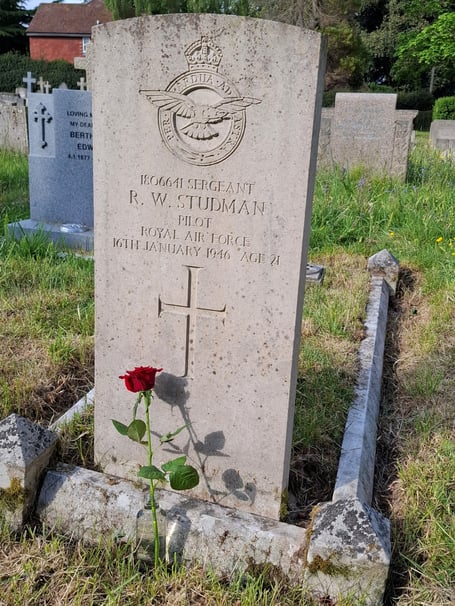
Fire escape
Someone's having a barbecue, said a visitor. No. Our neighbour ignites the barbecue with accelerant, so we don't benefit from the delightful scent of hot fat spilled on the grill.
But the scent of woodsmoke is one of my favourites, along with freshly mown grass and freshly brewed coffee.
The woodsmoke reminds me of another neighbour who would help me with all sorts of things: she tried to teach me to ride my little bicycle but more fun than my steering into the hedge was her taking me to see fires.
In those days not everyone had a phone. Imagine that! Not just no mobile but no telephone at all.
I remember she had the old “candlestick” variety which you now only see in black-and-white films. In order to call firemen the wartime siren would be sounded so they could get their bikes and dash to the fire station – few would have had cars, some may have had a motorbike.
We would set off in her car to find the fire. Sometimes a column of smoke made it easy, or we would follow our noses to the source.
We would watch the firemen at work – from a safe distance – and I would marvel at the way they could beat out flames even before the hoses were on.
In this part of the world fires get down into the peat soil and can lurk there until a breeze reawakens them. Sometimes we would go back to the seat of the fire the next day to check it was really out.
Someone asked if we ever had wild fires in this area. Yes! Don't you read the papers? As recently as Monday, 5 May there was a large fire on Turfhill in Lightwater.
It affected two hectares of common land, which the report usefully translated as the equivalent of about five football pitches and was attended by four fire engines, two specialist vehicles, an incident unit and two Land Rovers – so it was costly to the public purse. And it was started deliberately.
The fact that the area is known as Turfhill makes me suspect that it is a peaty area and must be revisited to check there is no danger of it reigniting.
Those youthful visits to fires taught me many things, notably that fire is a good servant but bad master – and I even got my fireman's badge in the Guides.
Med-Blocking
I am so often at the Royal Surrey Hospital in Guildford that they greet me by my first name, which I like. A bit like being greeted as a regular customer in some posh restaurant. It gives me the feeling that I shall be cared for. Which I usually am.
My visits tend to run together and if it were not for the fact that I am always accompanied by one of my daughters I would completely loose track of time – and medication.
On one inpatient visit I asked the ladies on my ward to tell us all how they met their husband. This was to break the ice and worked well – such interesting stories came out.
My last inpatient visit was different as most of the ladies were on their phones. In particular one lady – I could, of course, only hear one side of the conversation, but this lady was very clear and I wondered whether she was running a complicated business or an equally complicated family.
It turned out to be both. She was desperate to get home and get things sorted. I am sure it did her blood pressure no good at all. She was dressed and packed and the family was on stand-by to collect her.
But first of all she had to be signed off with her various medications. It transpired the hold up was due to just one piece of medicine which I understood was on a special list and therefore had to have special dispensation.
When it eventually arrived she was away – and commenting how the wait for her meds had resulted in not just bed-blocking but med-blocking as she could easily have vacated her bed at least two hours previously.
I recently visited an old friend in Woking Hospice and saw his meds delivered to him in one of those small plastic tubs.
“Ah, galleypots” he muttered. “I made them.”
Indeed he did, with his Woking-based company inventing and making field catering equipment.
This started me on another question: why are the day's pills put together in one gallypot and delivered to the patient in the morning? Back home I will go through my medication and read the labels: one to be taken first thing before food, another to be taken with food, another to be taken mid-morning – but in hospital I take them all in one go.
I have asked doctors about this and there is a pursing of the lips signifying “that's an interesting point” but there is no clear answer.
My last visit to RSH was delayed for an hour when we were told to wait at the pharmacy for my next lot of meds. We waited. And waited.
Nicola, who had greeted me like an old friend, said she'd check. Evidently prescriptions have to be signed off by a doctor. Had anyone contacted the doctor? Whatever, things started to move and eventually two well-laden pharmacists arrived with bags of medication.
This was a delay which could well have been avoided; I was waiting for a supply of Nutricia Fortijuce.
When this had first been prescribed I was still receiving treatment at the mobile unit in Morrison's car park and the heavy box was delivered to my car. When I needed more the box was, inadvertently, sent to Boots in the town centre, from which my daughter had to lug the two-and-a-half stone box through Woking due to road closures blocking off her usual route.
This time every bottle had been separately labelled with my name and details. No wonder we had to wait.
Why could they not have been decanted into a single box or bag with one label covering all the contents? I sometimes think that joined-up writing has escaped the NHS.
This also leads to car park-blocking, which leads to blood pressure rising.
It is not bed-blocking which is the problem but med-blocking.
That's Entertainment
Knaphill and St John’s Operatic Society – more simply referred to as KASJOG – will be staging their second annual summer variety show at The Lancaster Hall, Send, on Friday 30 and Saturday 31 May at 7.30 pm for an evening of favourite songs and sketches in a relaxed setting with table seating and a bar.
Tickets are £12.50, call 0333 666 3366.
Beetling Back
Last year I mentioned the lack of maybugs, also known as cockchafers. Those heavy-weight beetles which are rather poor flyers and serous agricultural pests.
But they are making an unwelcome return. One flew into my bedroom. Foolish me – I should know not to have the bedroom light on whilst the window was open.
I shut the door, I didn't want the creature dive bombing the rest of the house. I turned my light off and the outside security light on and opened the widow wide.
However, the creature did not take the hint and stumbled around the window frame. It has barbed legs which catch in things and it became tangled in a silk scarf I shook vigorously outside the window, but it clung on and then climbed back in.
The next thing I knew it was in my hair and I most certainly required help at this point! It was eventually unwound from my hair and chucked into the garden.
Worryingly it is sometimes called a junebug, so we have some time to go before we are safe.
We have also been warned about the Asian hornet, an invasive species which does our native bees no good at all.
Don't spare the bugs or the hornets just because they are insects – they are not friendly pollinators!





Comments
This article has no comments yet. Be the first to leave a comment.